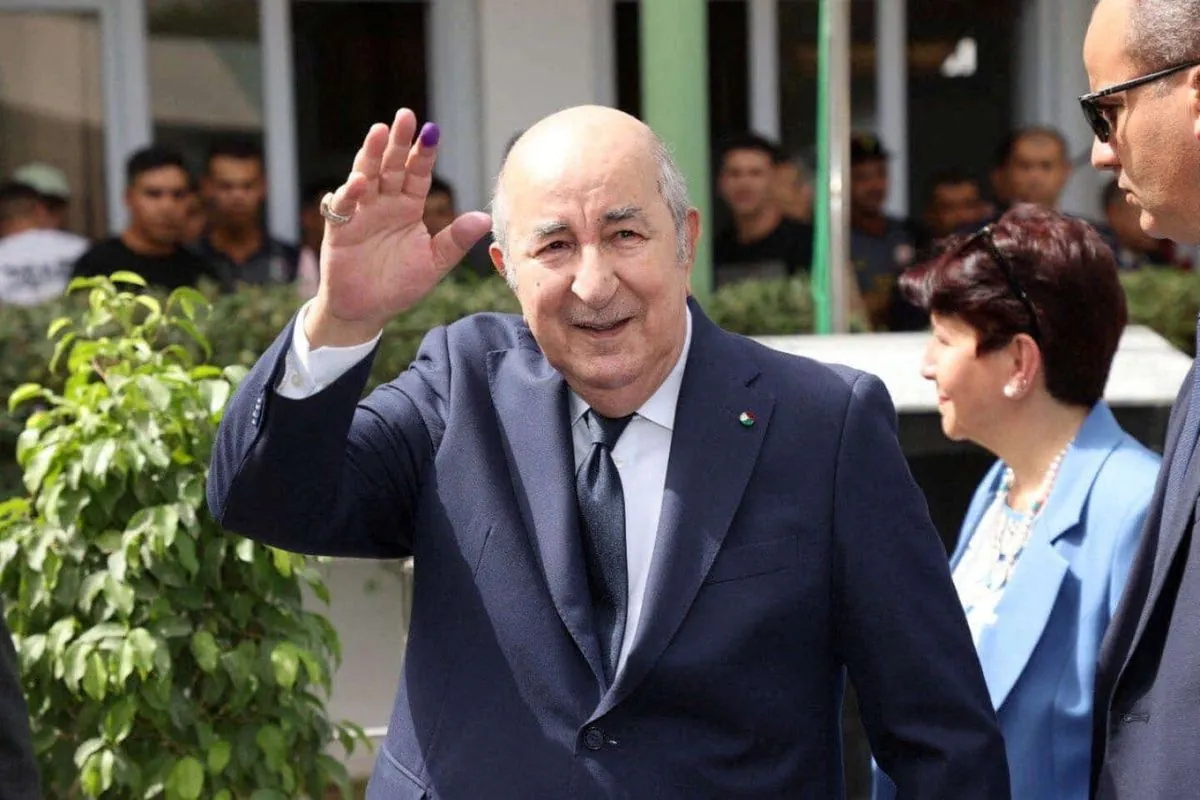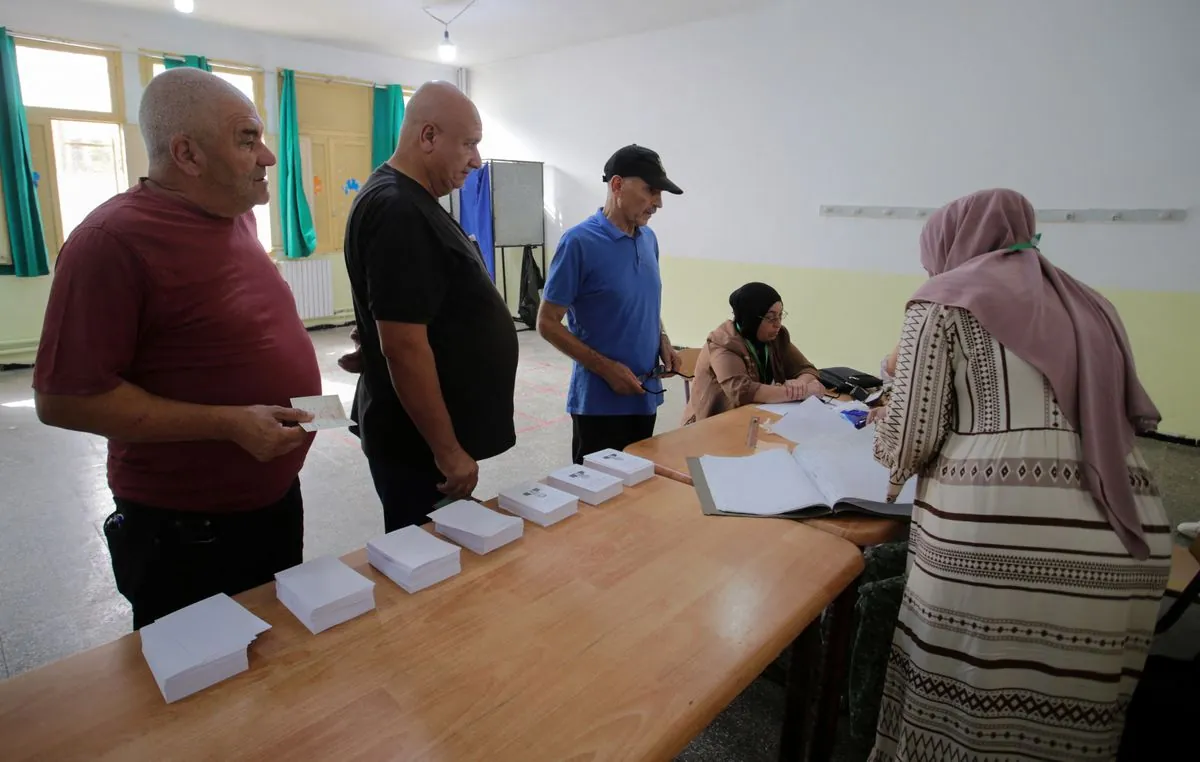Algerian President Tebboune Begins Second Term After Landslide Victory
Abdelmadjid Tebboune sworn in for second term as Algerian president following a decisive electoral win. The ceremony marks the continuation of his leadership amid increased voter turnout and political debates.

In a significant political event for Algeria, the largest country in Africa, President Abdelmadjid Tebboune has commenced his second five-year term following a decisive electoral victory. The inauguration ceremony took place on September 17, 2024, at the People's Palace in Club-des-Pins, a coastal area near Algiers, the capital city.
The recent election, held on September 7, 2024, saw Tebboune secure an overwhelming majority with 84.3% of the vote, surpassing his 2019 performance by a substantial margin. The constitutional court certified these results on September 14, 2024, after a recount requested by the candidates.
Tebboune's main challengers, Abdellali Hassan Cherif of the Islamist Movement of Society for Peace and Youcef Aouchiche of the Socialist Forces Front, were present at the inauguration. Cherif garnered 9.6% of the votes, while Aouchiche received 6.1%.
The election process, however, has not been without controversy. Critics have questioned the authenticity of the democratic process, viewing it as a facade for the political elite. Despite these concerns, the official voter turnout reached 46.1%, an increase from the 39.9% recorded in the 2019 presidential election.

Algeria, a country with a rich history dating back to ancient times, has faced political challenges in recent years. The Hirak movement, a series of pro-democracy protests, has highlighted the desire for political reform among many Algerians. With a population of over 44 million, of which about 30% are under 15, the country's political future remains a topic of keen interest.
As a major exporter of natural gas and oil and a member of OPEC, Algeria's political stability has implications beyond its borders. The country boasts the largest military in North Africa and has a strategic position with its long Mediterranean coastline.
Tebboune's second term comes at a crucial time for Algeria. The nation faces the challenge of diversifying its economy, which is heavily reliant on hydrocarbons, and addressing the aspirations of its youthful population. With a literacy rate exceeding 80%, there is potential for growth and development across various sectors.
As Algeria moves forward under Tebboune's continued leadership, the international community will be watching closely to see how the country navigates its political and economic challenges while maintaining its influential position in North Africa and the broader Mediterranean region.


































